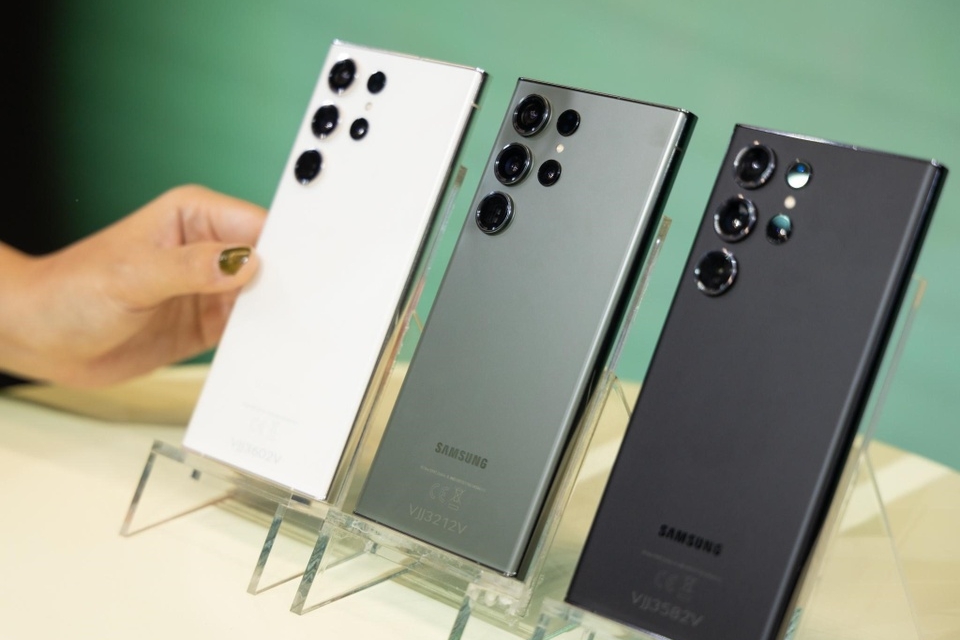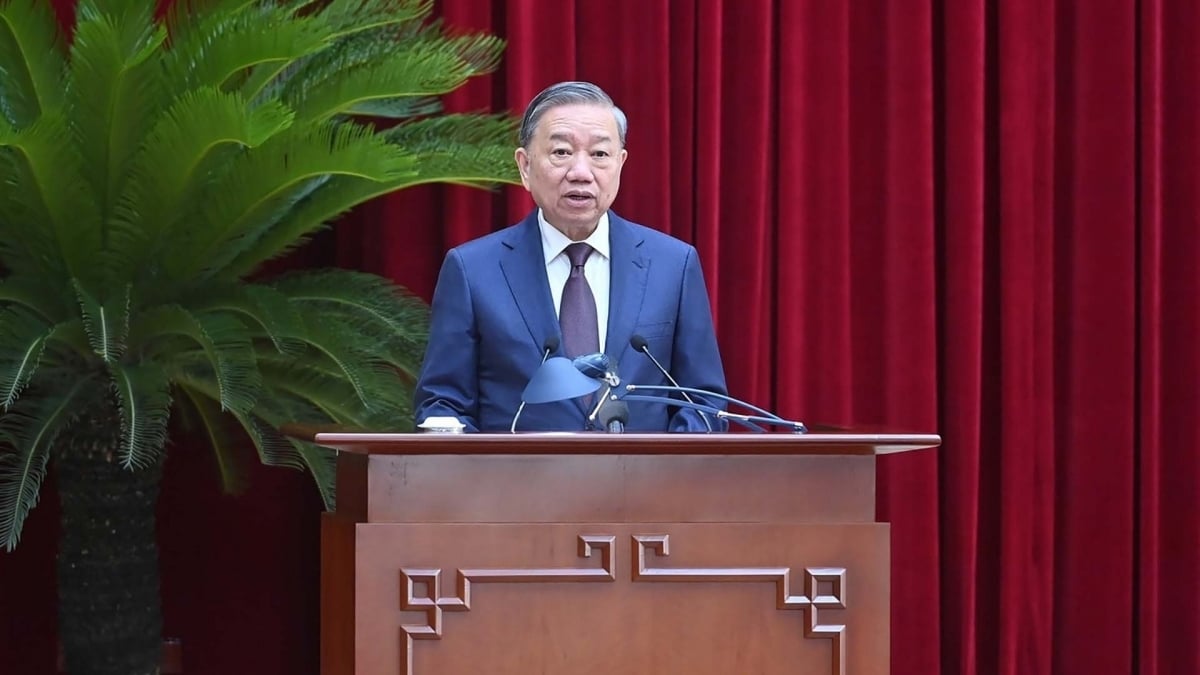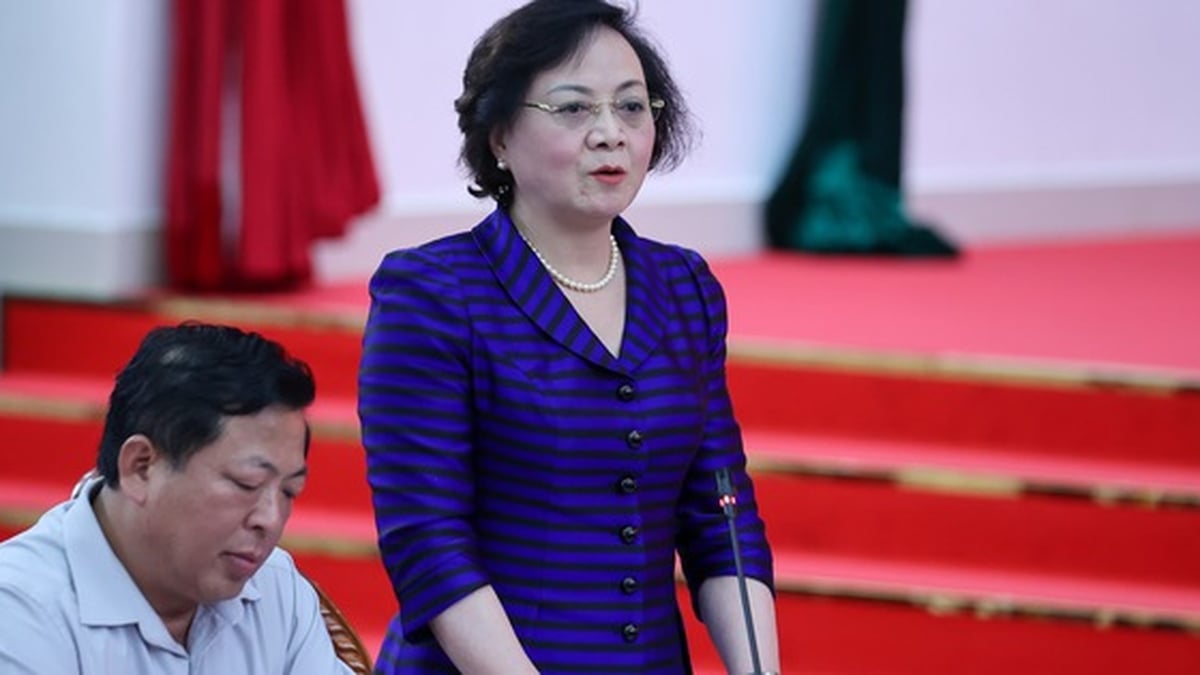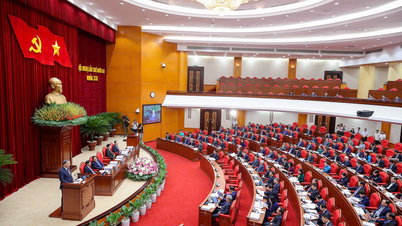Samsung's global smartphone market share in the first quarter was only 1% higher than Apple's, in a context where the overall market has shown no signs of recovery.
Samsung Galaxy S23 Ultra. Photo: Phuong Lam
According to statistics from Counterpoint Research, global smartphone sales in the first quarter reached 280.2 million devices, down 14% year-on-year and 7% compared to the previous quarter.
Among them, Samsung ranked first with 60.6 million smartphones sold in the first quarter, slightly higher than Apple (58 million units). The remaining positions in the top 5 belonged to Xiaomi (30.5 million units), Oppo (28 million) and Vivo (20.8 million).
Smartphone revenue in the first quarter reached $104 billion, down 7% compared to the same period last year. While Samsung led in sales, Apple still earned the highest profit, accounting for more than 80% of the entire market, far surpassing the Korean company by 72%.
Apple also accounted for half of the smartphone market revenue in the quarter, maintaining a 31% advantage over Samsung. The remaining companies in the top 5 accounted for only 5-10% of revenue.
Jeff Fieldhack, Research Director at Counterpoint Research, attributes Apple's success to its loyal customer base, which it has built through its ability to retain users within its ecosystem, while also finding new customers through refurbished sales.
“Apple’s ability to weather economic downturns and fluctuations is better than its competitors, while its customers remain loyal to the company. This means that Apple can meet the increased demand for the iPhone 14 series in Q4/2022 despite difficulties at the Zhengzhou factory, without losing market share or transferring to competitors,” Fieldhack commented.
Data from analyst firm Canalys reflects a similar picture, with smartphone market sales in the first quarter down 13% year-on-year.
Samsung was the top smartphone company in the first quarter with a market share of 22%, followed by Apple with 21%. After a year, the gap between the two companies has narrowed significantly (1% compared to 6%), the reason being that demand for the iPhone 14 Pro line was maintained throughout the quarter.
With a market share of 11%, Xiaomi ranked 3rd according to Canalys statistics. Meanwhile, Oppo and Vivo recorded market shares of 10% and 8% respectively, mainly coming from the Asia- Pacific market.
In its first-quarter financial report, Apple recorded iPhone revenue of $51.3 billion, up 2% compared to the same period last year. Speaking to CNBC, CEO Tim Cook affirmed that the revenue results of the last quarter were "better than expected".
Except for the bright spots of Samsung and Apple, the smartphone market is not expected to recover in the near future, according to analyst Tarun Pathak from Counterpoint Research.
“The persistent difficulties affecting the smartphone market are unlikely to ease anytime soon. In addition, the decision to cut oil production from OPEC countries could lead to increased inflation, reducing consumer purchasing power,” Pathak said.
The smartphone market's struggles have weighed on some companies' financial results. Samsung Mobile's first-quarter revenue fell 2 percent from a year earlier, while Samsung Electronics posted a 95 percent drop in profits due to a sharp drop in chip demand.
Qualcomm shares also fell after announcing that smartphone chip revenue in the first quarter fell 17% compared to the same period last year.
According to Zing
Source

























































































![[Infographic] In 2025, 47 products will achieve national OCOP](https://vphoto.vietnam.vn/thumb/402x226/vietnam/resource/IMAGE/2025/7/16/5d672398b0744db3ab920e05db8e5b7d)













Comment (0)